MercoPress. South Atlantic News Agency
Stories for August 11th 2008
-
Monday, August 11th 2008 - 21:00 UTC
Morales ratified but also the political scenario stalemate
Bolivian president Evo Morales was ratified in his post with a comfortable support in the range of 60% in Sunday's recall vote which also included the vice president and governors of all of the country's provinces.
-
Monday, August 11th 2008 - 21:00 UTC
Chavez preparing the field for Nov state and city elections
Columns marched through the capital Caracas to protest a package of laws that expand Venezuelan President Hugo Chavez powers while a delegation from opposition parties delivered a document at the Organization of American States stating that the latest decisions are a “coup” against the rule of law and the Constitution.
-
Monday, August 11th 2008 - 21:00 UTC
Argentina to buy 2008/98 bonds to help calm markets
The Argentine government announced the purchase of 2008 and 2009 bonds, --plus interest payments in advance-- in an effort to ease markets which have shown great anxiety over the political situation and economic slowdown of Argentina, particularly last week.
-
Monday, August 11th 2008 - 21:00 UTC
UK super “autosub” to explore deepest undersea volcanoes
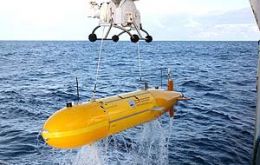
Scientists are set to explore the world's deepest undersea volcanoes, which lie 6km down in the Caribbean. Delving into uncharted waters to hunt for volcanic vents will be Autosub6000, Britain's new autonomously controlled, robot submarine.
-
Monday, August 11th 2008 - 21:00 UTC
Paraguay: The next leftist of the block
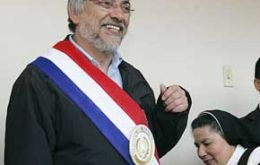
Next August 15 a major event will be taking place in one of South America's poorest and most forgotten countries: Paraguay.
Bishop Fernando Lugo will be taking the presidential oath, but even more significant the Partido Colorado which has had a hegemonic domination of the country's politics for the last six decades has accepted defeat and will take refuge in the elected Congress and whatever remnants of power it has in the bureaucracy. -
Monday, August 11th 2008 - 21:00 UTC
Hugo Chávez tightens the state's grip on politics and the economy
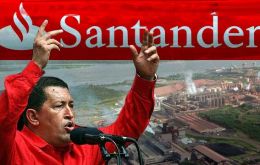
Last July 31st. Venezuelan president Hugo Chavez extraordinary powers came to an end but it was also a day of great announcements. Twenty six decrees were signed including several of the autocratic reforms the former paratrooper wanted to impose with a referendum last December and were decisively rejected by voters. This is interpreted as a strategy to help contain the country's inflation, shortages and economic disarray in anticipation of the coming city and state elections of November plus. A piece from The Economist summarizes the evolution of the eclectic leader who is loosing much of his allure in spite of the affluence from oil revenues.
-
Monday, August 11th 2008 - 21:00 UTC
Kirchners declared solid bank account and 38 properties
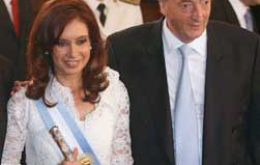
Argentina's ruling couple Cristina and Nestor Kirchner assets in the first half of the year increased significantly while the Education minister Juan Carlos Tudesco figures as the richest man in the cabinet, according to their income disclosures published over the weekend in the Buenos Aires press.
-
Monday, August 11th 2008 - 21:00 UTC
High food prices turn Chileans to alternative markets
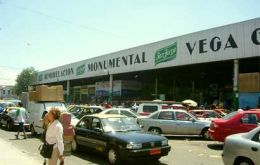
With food prices rising, a greater number of Santiago households appear to be turning to alternative food markets.
-
Monday, August 11th 2008 - 21:00 UTC
Uruguay confirms economic policy and names new minister
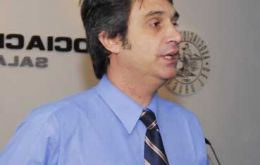
Uruguayan president Tabare Vazquez confirmed Monday that Economy minister Danilo Astori would be leaving his post next September 15th but at the same time emphasized that there would be no changes to the current macroeconomic policy to which his administration has been successfully committed.
-
Monday, August 11th 2008 - 21:00 UTC
Argentina/Uruguay clash over export duties in Mercosur

Neighboring Uruguay and Argentina have again clashed over trade in the framework of Mercosur. Argentina is complaining about a 2% consular levy Uruguay applies to all imports while Uruguayan authorities argue that the controversial farm export taxes distort market conditions.
